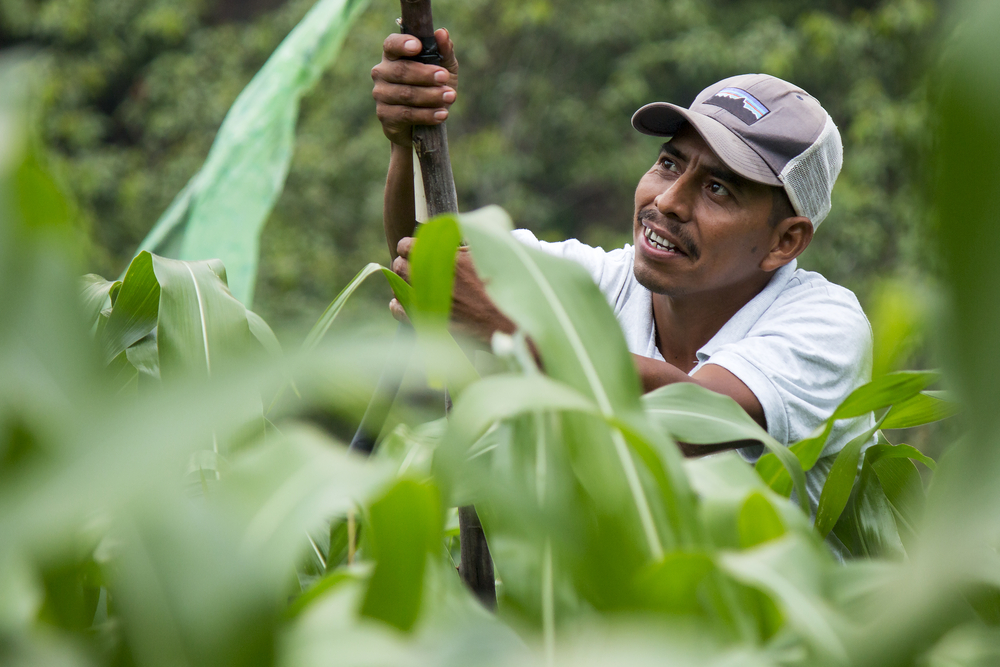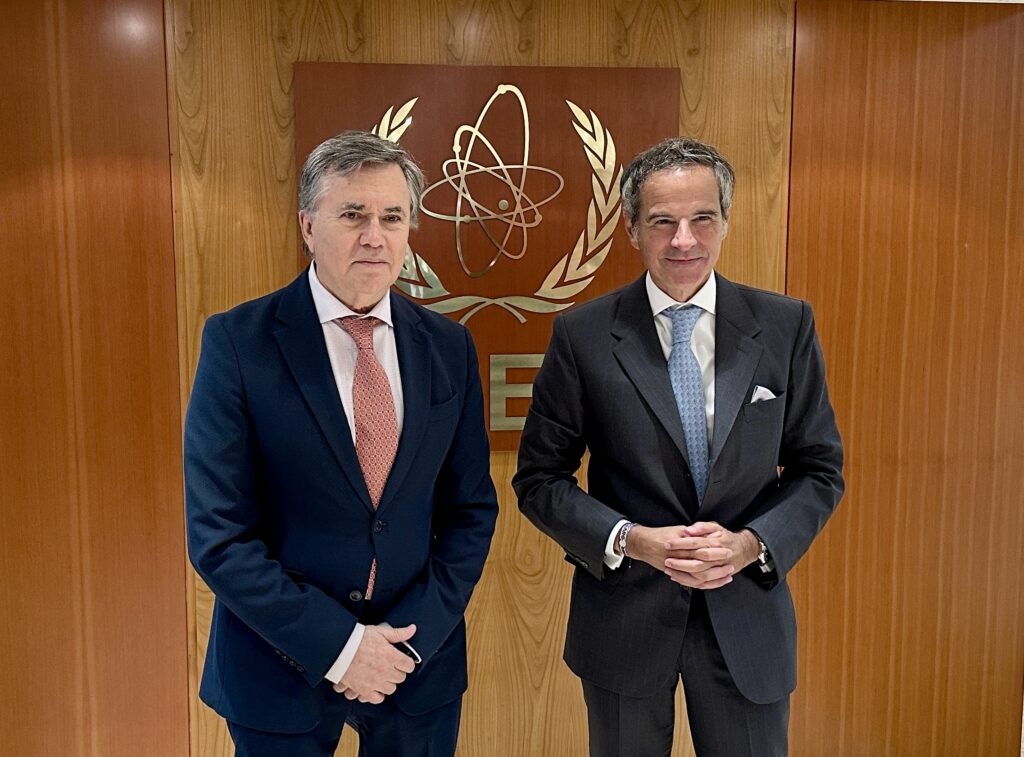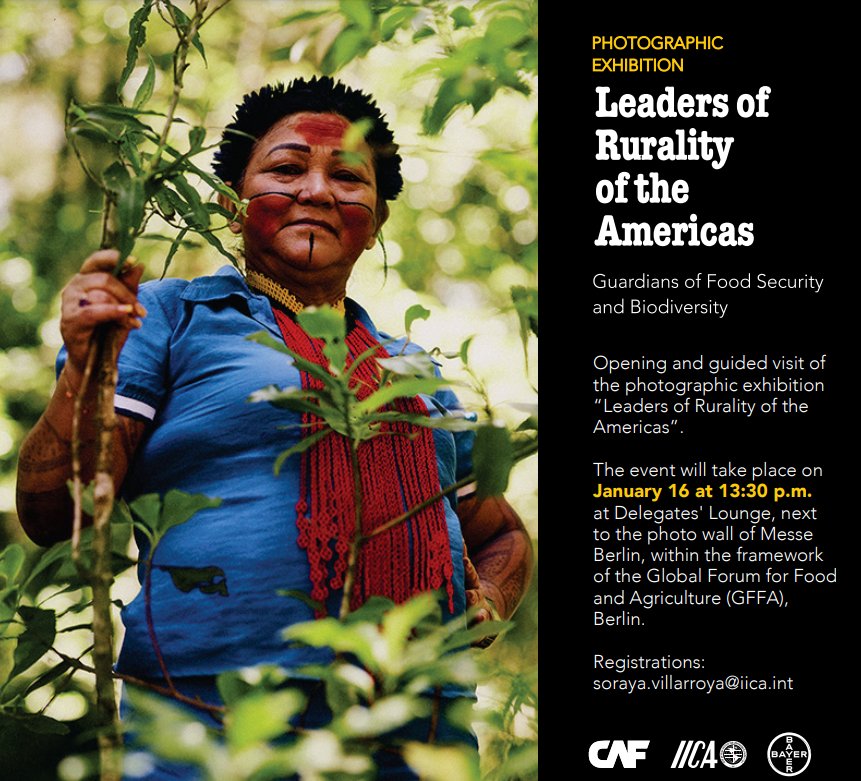Iniciativa del bloque europeo y el Instituto procura mejorar la resiliencia climática y la seguridad alimentaria de al menos 3 000 pequeños productores de granos básicos del Corredor Seco Centroamericano.

San José, 4 de mayo, 2022 (IICA). El proyecto Sistemas Agroforestales Adaptados para el Corredor Seco Centroamericano (AGRO-INNOVA), de la Unión Europea (UE) y el Instituto Interamericano de Cooperación para la Agricultura (IICA), impulsa la creación de una red entre instituciones públicas y privadas y organizaciones de productores que facilite la innovación y la transferencia tecnológica para pequeños productores de esta región, una de las zonas más vulnerables del planeta al cambio climático.
La propuesta para la creación de la Red Técnica Regional Agroforestal dio sus primeros pasos en un taller que convocó a 44 técnicos e investigadores de los socios nacionales públicos y privados del proyecto, implementado en Costa Rica, El Salvador, Guatemala, Honduras, Nicaragua y Panamá, organizado por la UE y el IICA con el apoyo del Centro Agronómico Tropical de Investigación y Enseñanza (CATIE).
La red la integrarán los institutos nacionales de tecnología agropecuaria de esas naciones, los institutos del café, los centros de investigación académicos y organizaciones del sector productivo.
Su rol inicial sería establecer colaboraciones y sinergias para compartir experiencias en tecnologías agropecuarias, forestales y digitales, así como buenas prácticas en las experiencias exitosas fundamentadas en investigación y transferencia tecnológica de sistemas agroforestales multiestratos (los cuales combinan la siembra de árboles o forrajes con la producción de alimentos) con capacidad de ser aplicadas y adaptadas en diferentes zonas del Corredor Seco Centroamericano para hacer frente a los desafíos que impone el cambio climático.
“El poder tener una red de colaboradores, de trabajo en equipo, de instituciones fuertes como los institutos del café, los de investigación y desarrollo, y organizaciones de productores, es fundamental para dar resultados y generar impacto sobre todo en la pequeña agricultura”, dijo el Jefe de Gabinete del IICA y Representante del Instituto en Costa Rica, Miguel Arvelo.
El Jefe de Cooperación de la UE, Alberto Menghini, respaldó este primer paso para la conformación de la red, parte de los esfuerzos regionales por solventar los retos climáticos en la agricultura y “la situación de inseguridad alimentaria y nutricional en la que están casi 6 millones de personas en Centroamérica”, así como para mejorar los medios de vida en las zonas rurales.
“La tecnología nos pone en las manos instrumentos como la observación satelital, la agricultura de precisión y las biotecnologías, que nos permitan reinterpretar esta ciencia antigua como es la agroforestería y ponerla al servicio de estos retos inmediatos”, afirmó Menghini.
El proyecto AGRO-INNOVA prioriza dentro de sus objetivos mejorar la resiliencia climática y la seguridad alimentaria de al menos 3 000 pequeños productores de granos básicos del Corredor Seco Centroamericano, una de las zonas del mundo más azotada por fenómenos climáticos extremos, por medio de la gestión de conocimiento, formación de capacidades y alianzas estratégicas basadas en tecnologías agropecuarias, forestales y digitales.
El proyecto, presente en 15 territorios del Corredor Seco Centroamericano, conformados por 34 localidades o municipios, ha intervenido casi 750 hectáreas de fincas de micro y pequeños productores, brindado asistencia técnica directa a más de 1 600, establecido 103 parcelas demostrativas con una extensión de 78,26 hectáreas y realizado actividades de formación de capacidades con la participación de 1 462 productores.
Todo esto se ha logrado con el apoyo de alianzas estratégicas con 31 socios, entre instituciones, actores privados y organizaciones de productores líderes en la región, así como la asistencia técnica del CATIE.
“En sistemas agroforestales hay muchas lecciones aprendidas; documentar, sistematizar las experiencias que hay en los países de uno de los sistemas más resilientes, lo vemos como el eje principal para optimizar la producción y beneficios, incluyendo la mitigación y adaptación al cambio climático y atendiendo la problemática en la conservación en la biodiversidad”, indicó durante el evento el Director General del CATIE, Muhammad Ibrahim.
Presentación de experiencias exitosas
En el taller de AGRO-INNOVA se compartieron ocho experiencias de gestión de sistemas agroforestales multiestratos a nivel nacional que se llevan a cabo de manera conjunta con el proyecto, que abarcan acciones como el mejoramiento de semillas, sistemas de riego, producción de bioinsumos, conservación y manejo de suelos, aplicación de soluciones de agricultura digital y el uso de árboles adaptados a las condiciones climáticas de la región, que proporcionan una serie de beneficios a los productores y al ambiente.
El Instituto del Café de Costa Rica presentó acciones de adaptación y mitigación para la producción sostenible del cultivo bajo modelos de sistemas agroforestales multiestratos, el Centro Nacional de Tecnología Agropecuaria y Forestal de El Salvador presentó acciones en transferencia y extensión rural para la promoción de modelos bajo dicho sistema en pequeños productores del Corredor Seco Centroamericano, y la Asociación Nacional del Café de Guatemala expuso sobre su Centro Rural de Capacitación en Café para la formación de capacidades de productores.
El Instituto Hondureño del Café mostró acciones de transferencia tecnológica en sistemas agroforestales multiestratos para pequeños productores del grano y la Dirección de Ciencia y Tecnología Agropecuaria en pastos y granos básicos, mientras que el Instituto Nicaragüense de Tecnología Agropecuaria presentó sus proyectos en tecnologías validadas en granos básicos, raíces y tubérculos adaptados a las condiciones del Corredor Seco Centroamericano.
Por último, el Instituto de Innovación Agropecuaria de Panamá mostró su experiencia de gestión en la vitrina de difusión de tecnologías en sistemas agrosilvopastoriles.
“La gran oportunidad que se nos presenta con AGRO-INNOVA es pensar en todas las cosas que podemos hacer, aplicar la gestión de conocimiento que involucra compromiso, trabajo colaborativo para alcanzar un objetivo común y hacerlo de la mejor manera, abordar experiencias, generar contenidos y acciones concretas que marquen la diferencia en el campo”, concluyó la directora Ejecutiva del Instituto del Café de Costa Rica, Xinia Cháves.
Más información:
Pedro Avendaño Soto, Coordinador de la Unidad Ejecutora Regional AGRO-INNOVA.










